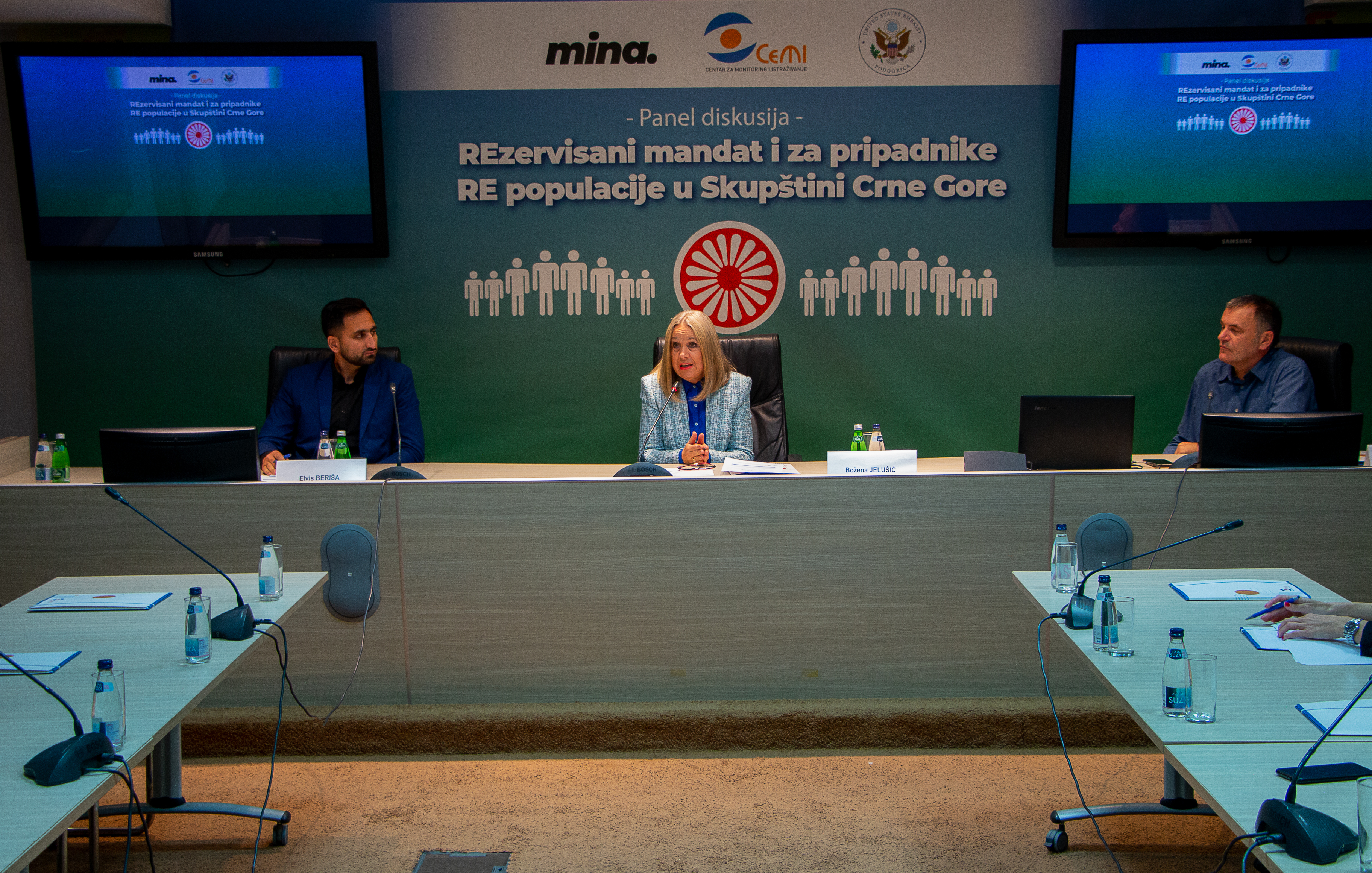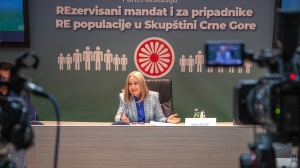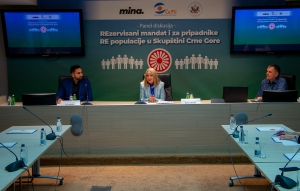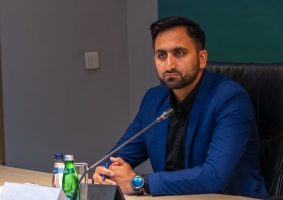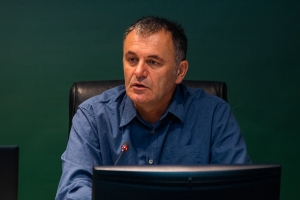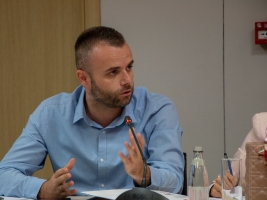It is necessary to ensure that the Roma community has a representative in the Parliament of Montenegro, because the members of that people would explain in the best way what problems they are facing and what they see as a solution.
This was assessed at the panel discussion "Reserved mandate for members of the Roma population in the Parliament of Montenegro", organized by the Center for Monitoring and Research (CeMI) and the MINA agency.
MP Božena Jelušić of the Civic Movement URA believes that more than six thousand members of the Roma population live in Montenegro and that a certain number of Roma are not declared in this way.
She said that it seems to her that if there is no representation of the Roma population in the Parliament, it is a clear confirmation of racism.
"Distance in relation to the Roma population, just as in relation to the LGBTIQ population, are the two biggest distances shown by our society," said Jelušić.
Jelušić stated that it is clear that the lag is so great that it requires urgent measures and the representation of Roma in the Parliament.
"How would they delegate from their own ranks which laws are completely insensitive to them and where the biggest problems are when it comes to equal access to opportunities, in what way do they see a way out of the problem," said Jelušić.
According to her, if there are some traditional and customary segments in the Roma population, which prevent some progress, society is obliged to change what is in its power.
She believes that we should look for certain models that numerically most closely resemble or are in line with the minority communities in Montenegro that have their own parliamentary representation.
Jelušić assessed that it is in the best interest of the Roma people to first develop doubts that they will primarily be for the regime or the opposition, and not for themselves and their potentials and opportunities that they cannot use adequately in this country.
"Inclusivity is one of the fundamental postulates if one wants to build a democratic society and a society in which everyone has the right to be represented and to participate at least in the adoption of those policies that directly affect his life and opportunities," she stated.
She stated that Montenegro also has problems when it comes to education.
"We have had scandals that a highly educated young Roma can only be employed as a porter or auxiliary worker, so that's where education ceases to be important," said Jelušić.
Jelušić said that systemic injustice produces terribly bad effects.
She pointed out that everything that is transferred to the Roma community, promises to give them land, is done by the majority community.
The executive director of the non-governmental organization Phiren amenca, Elvis Beriša, stated that members of the Roma community are already involved in political life in Montenegro, but not to a sufficient extent and that they are generally unaware of the importance of their voice.
He said that according to the data of the Ministry of Human and Minority Rights, over 75 percent of members of the Roma and Egyptian community are not familiar with the electoral system.
"I think it is very important that the Roma community has the conditions and an environment that supports their inclusion," said Beriša.
Beriša assessed that very little focus was placed on the issue of political representation of the Roma community, which, he said, is what the community needs.
As he stated, since the introduction of the principle of affirmative action, the Law on the Election of Councilors and Members of Parliament has been amended 18 times, and there was no mention of lowering the threshold from that 0.7 percent.
"We say that it should be done, but no one wants to actively support it," Beriša said.
He said that the regime, both before August 30, 2020 and today, did not respond to this and does not respond.
"Until 2020, the opposition believed that it was a safe vote for the DPS, and the DPS did not want to allow the Roma community to have that census lowered precisely because it was easier to control and manipulate the Roma community," said Beriša.
Beriša said that it is an open secret that the Roma National Council has coordinated with the Roma community, especially the most vulnerable part, before every election.
"From 2020, we also have a registered Roma party that failed to participate in the parliamentary elections - with the answer that they could not do it because the census was not reduced," he said.
Beriša said that he does not think that it would give any results, change the situation of the Roma community, but that it would contribute to the fact that the Roma community, through representation and active participation, can be an actor in the adoption of some important policies.
"This is exactly what has been tried until now, so that the Roma community is not aware that going to the elections is not just a simple obligation or to keep a family member at work, because the most common pressures are like that," said Beriša.
As he said, it is an open secret that the largest number of members of the Roma community are employed in utility companies and that there was the most pressure before all the elections.
"I believe that the Roma political party would have played a much more significant role if it had done what was expected of it." To educate the Roma community about the power it has by going to the polls," said Beriša.
